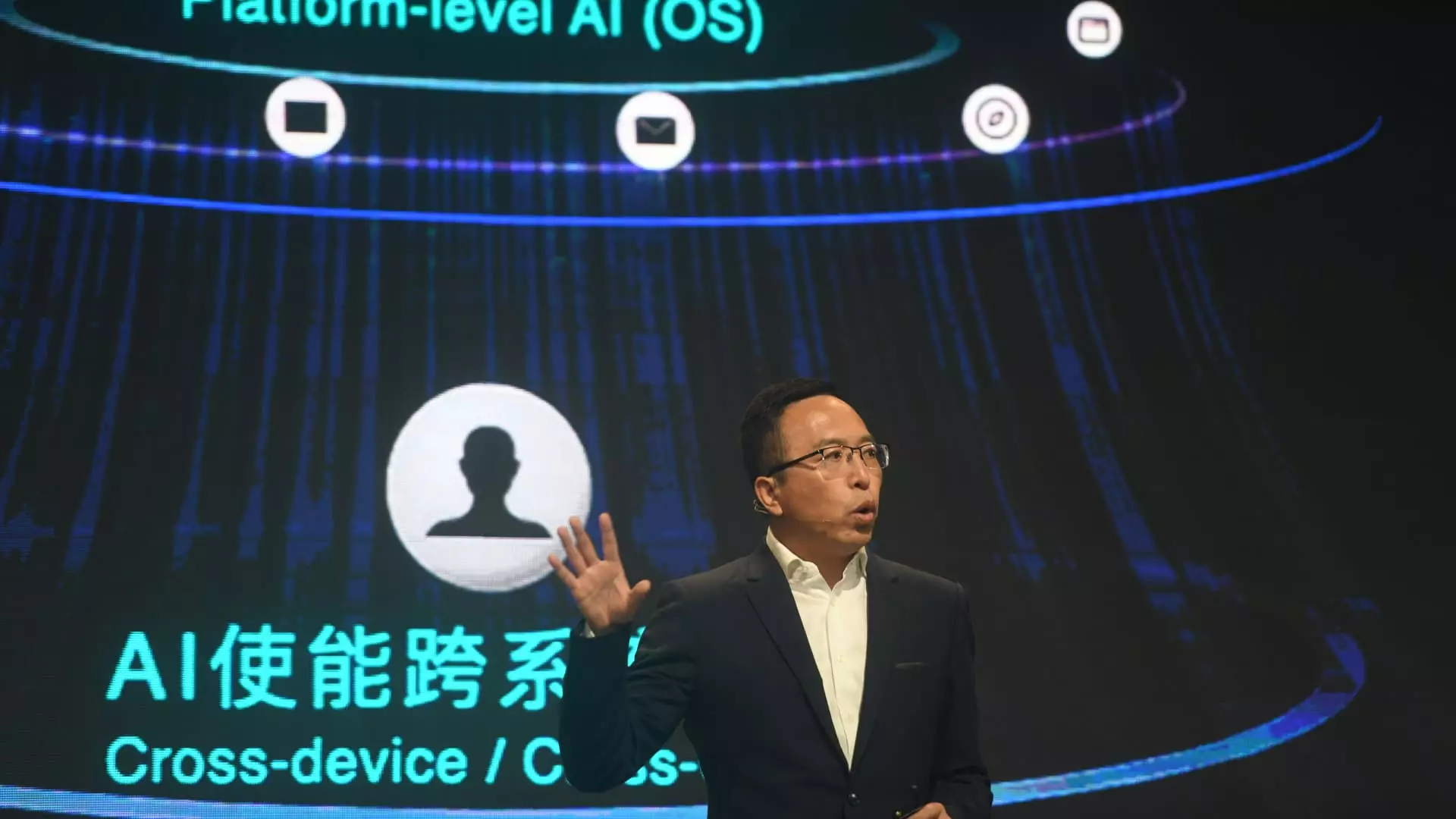The smartphone landscape in China is undergoing a significant transformation as local manufacturers increasingly integrate artificial intelligence (AI) into their devices. This trend presents a growing challenge for Apple, a company that has traditionally dominated the premium smartphone market. As competition intensifies, particularly with advancements in AI capabilities, the question arises: can Apple maintain its relevance in a rapidly evolving Chinese market?
Earlier this year, Apple found itself outside the top five smartphone vendors in China, as reported by research firm Canalys. The fall from grace can be attributed to fierce competition among local brands that prioritize AI integration into their devices. Major players such as Huawei, Honor, and Xiaomi are at the forefront of this revolution, leveraging AI technologies to enhance user experience and functionality in ways that Apple has yet to replicate. The recent unveiling of Huawei’s upgraded HarmonyOS system exemplifies this shift, as the company has developed an operating system that operates independently of Google’s Android platform.
The implications of this shift are crucial for Apple. While the U.S.-based tech giant is set to launch its Apple Intelligence feature for eligible devices outside of mainland China and the EU, this strategic decision may limit its ability to capture the lucrative Chinese market where users are increasingly attracted to AI-powered functionalities. Huawei has addressed this demand head-on, using homegrown AI capabilities in HarmonyOS to deliver features like text translation, note-taking, and photo editing, appealing directly to the needs of local consumers who seek innovation and convenience.
Honor, a brand that has emerged from Huawei, is also making waves with its AI-centric approach in the smartphone arena. The company recently showcased its latest version of the Magic operating system, highlighting AI capabilities that push the boundaries of user interaction. For instance, during a demonstration, Honor’s AI successfully placed an order based on a vague voice command, reflecting a smooth, intuitive user experience powered by intelligent machine understanding. Such innovations are a testament to the emerging potential of AI as an assistant, prompting users to rethink their engagement with technology.
Interestingly, Honor has established collaborations with Baidu and other Chinese tech companies to enhance its AI features for local devices, demonstrating a unified approach towards technological advancement. The Magic 7 smartphone, which is set to launch soon, is anticipated to showcase these AI features comprehensively. The integration of Qualcomm’s Snapdragon Elite 8 chip further amplifies the capabilities of these devices, spotlighting the competitive edge that local brands may have over Apple, whose recent models have struggled to maintain value in the second-hand marketplace.
The complex geopolitical landscape has also played a role in the evolution of the Chinese smartphone industry. U.S. sanctions have notably restricted Huawei’s access to Google services, prompting the latter to pivot towards developing HarmonyOS. Against this backdrop, Huawei’s continued focus on building a robust operating system has allowed it to circumvent reliance on Western technology, making significant strides in becoming self-sufficient. Apple’s upcoming quarterly results will be scrutinized closely, especially in light of dwindling revenue from Greater China, which has seen a decrease from 19% to 17% year-over-year.
As competition rises, it is becoming increasingly clear that Apple’s challenges extend beyond mere consumer preference; they encompass a wider ecosystem of technology innovation that local brands are capitalizing upon. The successful adoption of AI features by Huawei and its subsidiaries positions them favorably in the eyes of consumers, while Apple risks losing its foothold if it fails to accelerate its own technological advancements.
In this dynamic market, Apple’s attempts to solidify its presence through conventional offerings may fall short if it does not adapt to the innovative trends being championed by its competitors. As smartphones evolve into more than just communication devices, integrating functionalities that enhance everyday life will be paramount. Apple’s recent lunch meeting between CEO Tim Cook and China’s Minister of Industry and Information Technology indicates a recognition of the critical importance of data security and cloud services in retaining consumer trust—an aspect that may not be enough, however, to keep pace with competitors that are carving out their own niches through AI.
Looking ahead, it is imperative for Apple to strategically innovate and perhaps reassess its roadmap regarding AI deployment within its devices. The rapidly evolving landscape of smartphones demonstrates that in a world dominated by advancements in artificial intelligence, stagnation could lead to obsolescence. The stakes are high, and the battle for supremacy in technological innovation and consumer loyalty is far from over.

